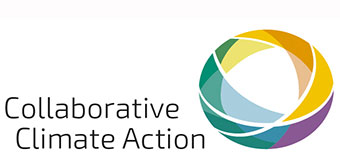Renewable energy is key to achieve climate-friendly cities and meet international, national and local climate ambition. The new REN21 Renewables in Cities 2021 Global Status Report provides a comprehensive overview of the status and developments of renewable energy in cities.
The report synthesises a wide range of themes regarding subnational climate action and provides a useful resource for practitioners and researchers alike.
The UNFCCC’s synthesis of the recently submitted NDCs demonstrates that current commitments are not enough to limit global temperature rise to 1.5°C.
Countries around the globe are facing a triple challenge with the economic recovery from COVID-19, long-term socio-economic development goals and the threats from the climate crisis. Cities and regions are key to tackle these challenges, as the new report by the Coalition for Urban Transitions argues.
The Climate Group’s annual “Global States and Regions – Annual Disclosure Report 2020” highlights the challenges and progress of 121 states and regions across all continents which disclosed their issues and solutions regarding climate change mitigation to the CDP.
With a significant amount of multi-level climate action taking place in Europe, the NewClimate working paper scrutinises subnational and non-state climate action in the EU.
The two-part study analyses net-zero targets of subnational governments and businesses. While the first part maps the existing targets as of now, the second part provides local actors with the tools to assess their ambitions and associated impacts.
The Coalition for Urban Transitions’ report adresses the questions how, in the wake of COVID-19, national governments can boost their economies, create green jobs today, and put their cities on a path toward long-term resilience and prosperity.
C40’s Climate Action Planning Resource Center has made available a number of new tools for cities to analyse their vertical integration and facilitate their climate action planning.
The UN-Habitat guide provides practical examples for incorporating urban climate action and human settlement issues in the NDC revision and enhancement process.
Contact
- Deutsche Gesellschaft für Internationale Zusammenarbeit (GIZ) GmbH
- Potsdamer Platz 10
- 10785 Berlin

